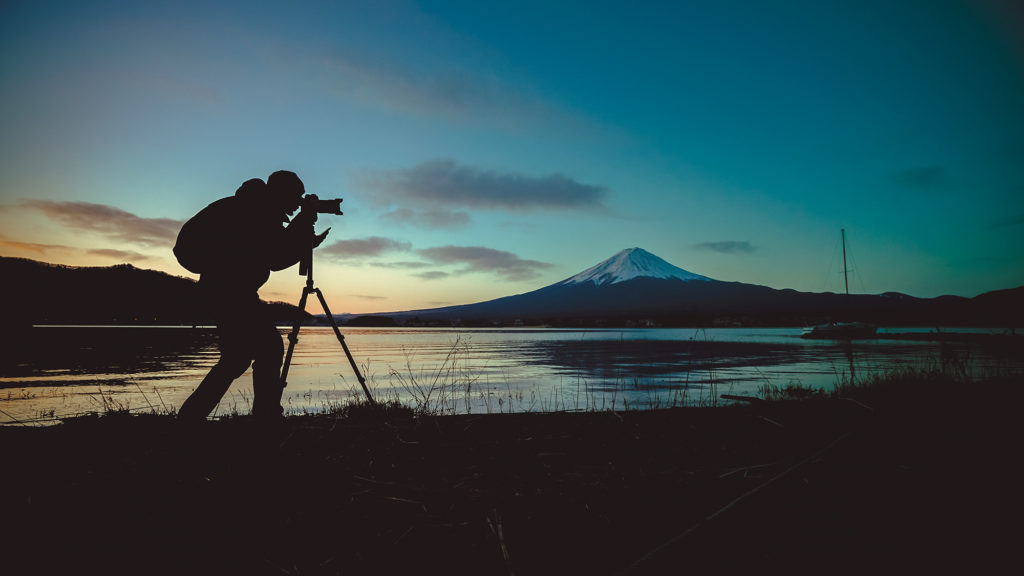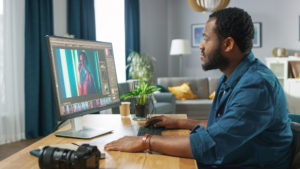
 Instructor: Amanda Castleman (guest instructor to be announced)
Instructor: Amanda Castleman (guest instructor to be announced)
Dates: 8/1
Duration: six weeks
Price: $480, full scholarships available
Genre: any
Enroll now!
In today’s fast-paced media landscape, photography often falls to editors, reporters, freelance writers, bloggers, influencers, experts, and even citizen photojournalists. This six-week class prepares you to flourish, whether you’re sourcing stock images, shooting for a social media brand, or illustrating your own stories.
Photography and Image Sourcing for Writers offers an overview of the different types of photography, as well as gear, lighting, composition, and lighting techniques. It explores how to approach subjects and put them at ease, while touching on the information you’ll need for captions and permissions/model releases.
 Each week, you’ll create images and receive advice on how to elevate your camera and post-processing games. The workshop also touches on selecting art for slideshows, photo essays and social media. Every question you’ve ever been reluctant to ask a colleague? They’re welcome here!
Each week, you’ll create images and receive advice on how to elevate your camera and post-processing games. The workshop also touches on selecting art for slideshows, photo essays and social media. Every question you’ve ever been reluctant to ask a colleague? They’re welcome here!
Instructor Amanda Castleman has shot for titles including Afar, Fodor’s, Outside, Sierra, BBC Travel, Robb Report, Morning Calm, USA Today, Travelgirl Magazine, The Seattle Times and The Daily Mail. As a reporter first — and professional photographer second — she understands how to accessibly explain technology and artistic principles to fellow writers.
This is not a static self-guided course, which stretches a $35 book’s worth of information into a $350 class. Photography and Image Sourcing for Writers features weekly asynchronous lectures – meaning you don’t have to be online at any particular time – plus assignments and critiques from the instructor. We also ask students to give and receive feedback from their peers, helping to sharpen their eyes, acclimate to journalism’s collaborative nature and to create community.
Note: students will upload images to Instagram. Don’t have an account or want a bespoke private feed for the class? They’re free and easy to set up – and instructor’s happy to help!
CURRICULUM FOR PHOTOGRAPHY AND IMAGE SOURCING FOR WRITERS
Color vs black-and-white; rule of thirds; golden hour; blue hour; silhouettes; foreground and background images to let the eye move within the frame; different types of images and how to DJ them to tell a narrative: reportage/photojournalism, posed, artistic, abstract, close-ups and macro, environmental and scene-setting, still-lifes, landscape, portraits; genres including architecture, fashion, food, sports, street, stock travel, weather, and wildlife
Assignment: a miniature photographic essay that tells a story about yourself or your interests (five to ten images)Week Two: Technology – Friend, Not Foe
Do you need a DSLR, mirrorless camera or point-and-shoot? Savvy smartphone-o-graphy, camera bag essentials, understanding megapixels, image size and resolution, cropping, resizing, filters/adjustments, (we recommend a free seven-day trial of Adobe Lightroom and Photoshop – or a $19.99/month photography plan for the duration of class)
Assignment: edit five shots that illustrate photographic principles we’ve explored so far. Submit the originals as well as the final imagesWeek Three: Beyond Snapshots
Getting permission to take photographs, permits, when and how NOT to shoot, inclusive photography, info to collect, model releases, keywording, creating slideshows, writing killer captions, to selfie or not to selfie?
Assignment: a slideshow with five to ten images, fully captioned
Week Four: Find Your Light
Principles of color, negative space, shooting with natural light, risks and rewards of flash, wide-angle and telephoto photography, zoom with your feet, shooting in low light, basics of astro- and long-exposure photography for easy high-impact nighttime images (with or without pro gear), tripods, release cables, HDR, post-processing 101
Assignment: submit ten images that illustrate at least three techniques new to you
Week Five: Seeing, Selecting and Post-processing Better
DSLR filters, advanced smartphone-o-graphy, more advanced Photoshop and Lightroom techniques, retouching basics, shooting underwater 101, dedicated portfolio sites like Flickr Pro and Photo Shelter, preparing images for editors and clients, selecting and editing images for social media
Assignment: edit 12-15 images you might include in a portfolio of your work (taken in class or before). Write a 150-word biography of yourself as a photographer or writer who shoots
Week Six: Seeing, Selecting, Sourcing and Staying Street Legal
Rights, fair use, sales, pricing, legal considerations, stock agencies, royalty-free art, public domain, Wikimedia, Creative Commons licensing, sourcing from social media, photo prints and books, associations and resources to help you keep evolving
Assignment: Q&A
Optional add-on: Website or portfolio review or one-on-one coaching — $150/hour
ALUMNI REVIEWS OF INSTRUCTOR AMANDA CASTLEMAN
“Amanda’s class is the best investment I’ve made in my writing career. A former newspaper and magazine staffer, I had an inkling I could have some success with freelancing, but felt super intimidated by pitching and breaking into bigger name outlets. The course was a wealth of information, beyond just pitching, really, with resources on imposter syndrome, sourcing, the business side of freelancing, etc. And though the personalized feedback was invaluable, it was also really illuminating to learn from other students’ pitches and writing interests and Amanda’s years of experience. She was able to edit and push us to grow while being incredibly supportive and boosting the group’s confidence. Back to that great investment: Not only did some of the pitches I worked on in class lead to bylines at some of my dream outlets, such as Bon Appétit and CNN Travel, but the class also paid for itself a few times over with those commissions. I’ve continued to take the lessons learned with me, Amanda is still cheering me on and I will very likely take another course soon. Thank you! ” — Sophia Gottfried
“I learned so much in Amanda’s class. Her lectures contain a wealth of practical, insider information helpful for the newbie as well as the experienced freelancer. The class was worthwhile for the pitch help alone — Amanda and her team provided expert, detailed feedback on six of my pitches, which amounts to only $40 per pitch!”
“The lessons are thorough and Amanda’s dedication to helping writers takes it to a whole new level. She answers all your questions in detail and never leaves you feeling lost in the middle of this big bad freelancing world.” — Sakshi Udavant
“I am an Amanda groupie. After three classes with her, my confidence as a writer has grown thanks to her encouragement and mentoring. I started to believe in my voice through her generosity, thoughtfulness and constructive feedback. Her confidence in my abilities helped me persevere and create a framework for a query that is garnering responses like “great pitching here” from editors (and also a series of assigned stories!).” — Elena Sonnino
“Her critiques are thorough, with insightful edits. Plus she’s kind and considerate in her critiques while helping writers. In the midst of the class, I even landed an assignment with Fodor’s, something I don’t think I could have done without the skill and confidence I got from studying with Amanda.” — Malika Bowling
“What an amazing gift you’ve given us: personalized attention plus huge generosity in sharing practical knowledge from the trenches. Far better than courses at traditional institutions.” — Anne Anderson
Read more reviews here.
Optional Reading
The course doesn’t require any of these texts, but they’re all excellent volumes to have in your library.
- National Geographic Photo Basics by Joel Sartore and Heather Perry
- Adobe Photoshop Lightroom Classic Classroom in a Book by Rafael Concepcion
- Mastering Composition: The Definitive Guide for Photographers by Richard Garvey-Williams
- Understanding Exposure, Fourth Edition: How to Shoot Great Photographs with Any Camera by Bryan Peterson
FREQUENTLY ASKED QUESTIONS
Where are the classes held?
We’ll be working on Google Classroom, a browser-based teaching platform. This allows files to be shared easily, without cluttering your inbox, and gives you classroom access from any net-wired terminal, anywhere in the world. But you’ll still have options to push alerts to email, if that appeals.
Students will also need to use Instagram (free), and we also recommend a free-trial or monthly $9.99 subscription to Adobe’s Photoshop and Lightroom bundle.
When does the bell ring?
Never! Go online whenever you please — the classroom is open 24/7.
Is there a video component or live chat?
No. The lectures, feedback and chat forums are all done in writing, so we can accommodate students traveling and living in many different time zones.
What’s with the goofy name?
We’re honoring the animal named most fearless by the Guinness Book Of World Records – and also this hilarious 2011 viral video by Randall (warning: explicit language).
Media freelancing and staffing can be stressful. We hope our tribute to the Honey Badger reminds you to be tenacious — and also to smile a little too.
What if I work in another genre than the instructor?
No problem at all. This workshop explores the best practices of photography across journalism, blogging and social media.
Didn’t Julie Schwietert Collazo teach a class like this?
Yes! Amanda created the Honey Badger brand in 2015 and briefly handed it off to the amazing Ms. Collazo, when she took a break from teaching. Julie is now busy captaining Immigrant Families Together, but still offers coaching and consultations via her website.
Can I travel during class?
Students — and the instructor — frequently travel during the course. The lessons and discussions remain online, and late submissions are welcome by special arrangement throughout the four-week period. The decision should hinge upon your work habits: can you work and focus well on the road? Will you have the discipline to make up assignments back home?
Is the course suitable for experienced photographers?
Yes, if you’re a writer who shoots or sources images. The workshop may be too basic for full-time, professional photographers, however.
Can unpublished or emerging writers or photographers benefit from this workshop?
Yes. Wherever you are on the ladder, we can help you climb higher.
How much time does it take?
The time commitment varies, of course, but each week, students average 30-60 minutes to read the lecture and at least 60-90 for the assignments, plus another half hour for peer feedback. So plan for a minimum of two to three hours.
I live outside the U.S. Is this a problem?
The class is entirely online with no fixed hours. All you need is a computer, Internet access, a browser and a credit card.
Will this course help a blogger?
Absolutely.
What if I have another question?
Please ask us! Email amanda@writelikeahoneybadger.com. (Please note: we supply this address so we can assist students and alumni. We do not accept proposals to improve SEO or app/web-dev proposals. All off-topic emails will be reported as spam.)

